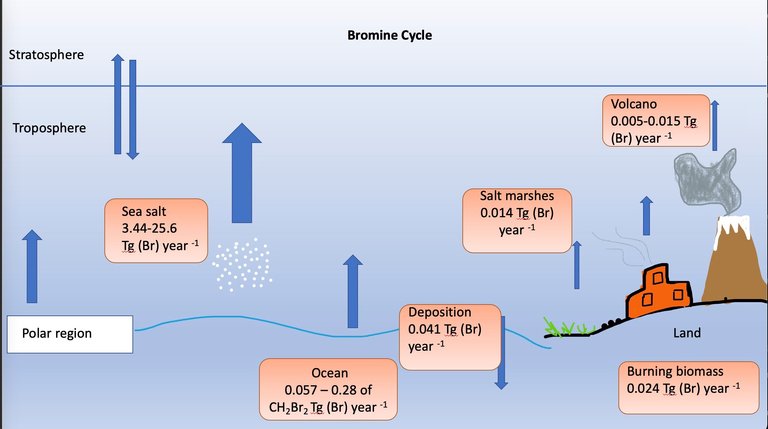Do you know that science loves cycles and it looks like we are going to continually find new cycles as time goes on. You doubt what I say, then let me give you list of cycles you might want to know. You must have heard of carbon cycle, kreb cycle, nitrogrn cycle, but I do not know if you have heard or seen the SALT cycle?
When I mention salt, do not let your mind go to the one in your kitchen because Sodium Chloride (NaCl) also known as table salt is just one type of salt and there are numerous salt in chemistry which is a combination of a positive ion and a negative ion to become a neutral compound. That said, Na+ and Cl- come together to give NaCl which is the table salt for your food and chips. The same goes with NaSo4 and other salts. As long as the charges are balanced out, some ions are grouped to form a salt.
When talking about salt cycle, scientists usually will check out Sodium, Potassium, Calcium, Chloride, Magnesium, Bicarbonate, and Sulfate. These ions are together when they are in solid form but when they are immersed into water, the polar properties of water would separate the ions until they dry out and stuck back together. Talking about their cycle, they can erode out of rock, dissolve in water which goes down into the sea. it can then be deposited by the sea floor or blown out by the wind.
Not until recently in a 2023 paper, people didn't understand much about the salt cycle. Researchers made a case that the salt cycle belongs with the water cycle as well as other cycles we think about for how stuffs move around, an they also they confirmed that humans are moving salt through its cycle faster than it would and at higher quantity. When we mine these salts from rocks, we get them out faster that they would have naturally, then when we move them around and use them for ourselves, they get washed off back into the environment faster than they would if they were to go through their natural process.
So many human activities make salt cycle faster and in a larger quantity but then it is needed in fertilizer, soap, cements, and even road salt. I hope very soon, salt cycle would not be a concern to us the way carbon, and ozone layer depletion is a problem now. When winds blow salts, they can destroy soil fertility and when this salt gets into our water, they can also have effects. You know the sodium effect on blood pressure but that's little compared to having Rhadium finding its way into our water.
This research is just beginning and the researchers are saying that we need to understand the effect of humans on salt transport and how we hasten the salt cycle, so we can know the effective limit. The salt cycle is an emerging field of study, and researchers are calling for a deeper understanding of how human activities influence this cycle. By recognizing and addressing the ways we hasten the salt cycle, we can better manage its impact on the environment.
As we learn more about the salt cycle, it's crucial to consider its long-term effects and implement strategies to mitigate any negative consequences, much like we are currently doing with carbon emissions and ozone depletion. Understanding and managing the salt cycle will be vital for ensuring environmental sustainability and protecting public health.
https://doi.org/10.1038/s43017-023-00485-y
https://phys.org/news/2021-04-road-salts-human-sources-threatening.html
https://new.nsf.gov/news/people-are-disrupting-natural-salt-cycle-global
https://pubmed.ncbi.nlm.nih.gov/38515734/
https://cmns.umd.edu/news-events/news/humans-are-disrupting-natural-salt-cycle-global-scale-new-study-shows

